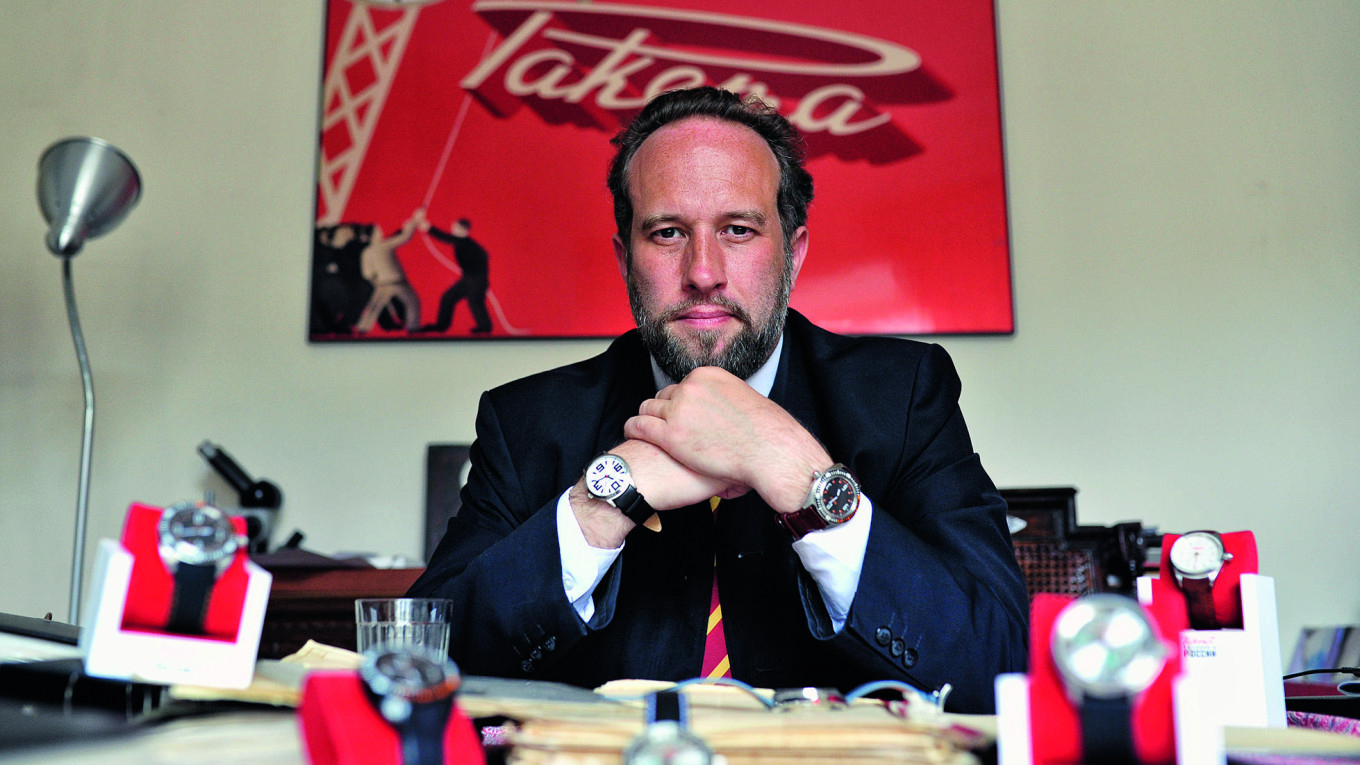“Why do you need a watch?” asks Count Jacques von Polier, mid-way through a tour of his design studio. The French creative director of Russia’s oldest watchmaker, Raketa, seems to have given this question a lot of thought.
“You don’t,” he retorts.
For a man who eight years ago abandoned a lucrative financial career in Moscow’s Troika Dialogue investment bank to save the struggling watchmaker, it is a frank admission. After all, his company is producing highly desirable, cool, functional watches—and is one of only a handful of factories worldwide still manufacturing mechanical watches.
But none of that really matters, he says: “You don’t need any of it—you have time on your phone, on your microwave, it’s everywhere.”
The only reason to buy a watch is the image behind it, he says.
Watches for patriots
By impersonating recognizable Soviet-era models, von Polier’s Raketa watches consciously tap into mainstream Russian patriotic culture. They sell the anodyne story of a great country accomplished in science, engineering and culture.
The exploration of the Arctic, triumphs of military engineering, and the conquest of space—these are the leifmotifs of von Polier’s watch design.
“We like everything Russians can be proud of,” von Polier says. “And we show a nice Russia, away from the negatives.”
Von Polier does not hide his ambitions for Raketa, which, he says can become the “next Louis Vuitton.” His brand has the advantage of combining a rich history, fine craftmanship and brand awareness, he says: “Almost everyone in the former communist block knows what a Raketa watch is.”
The result of von Polier’s approach is a line of modern, highly-functional mechanical wristwatches that give off a vibe of Soviet retro-cool. But the watches certainly don’t come cheap, priced well-above what the typical Russian (or indeed expat) can afford.
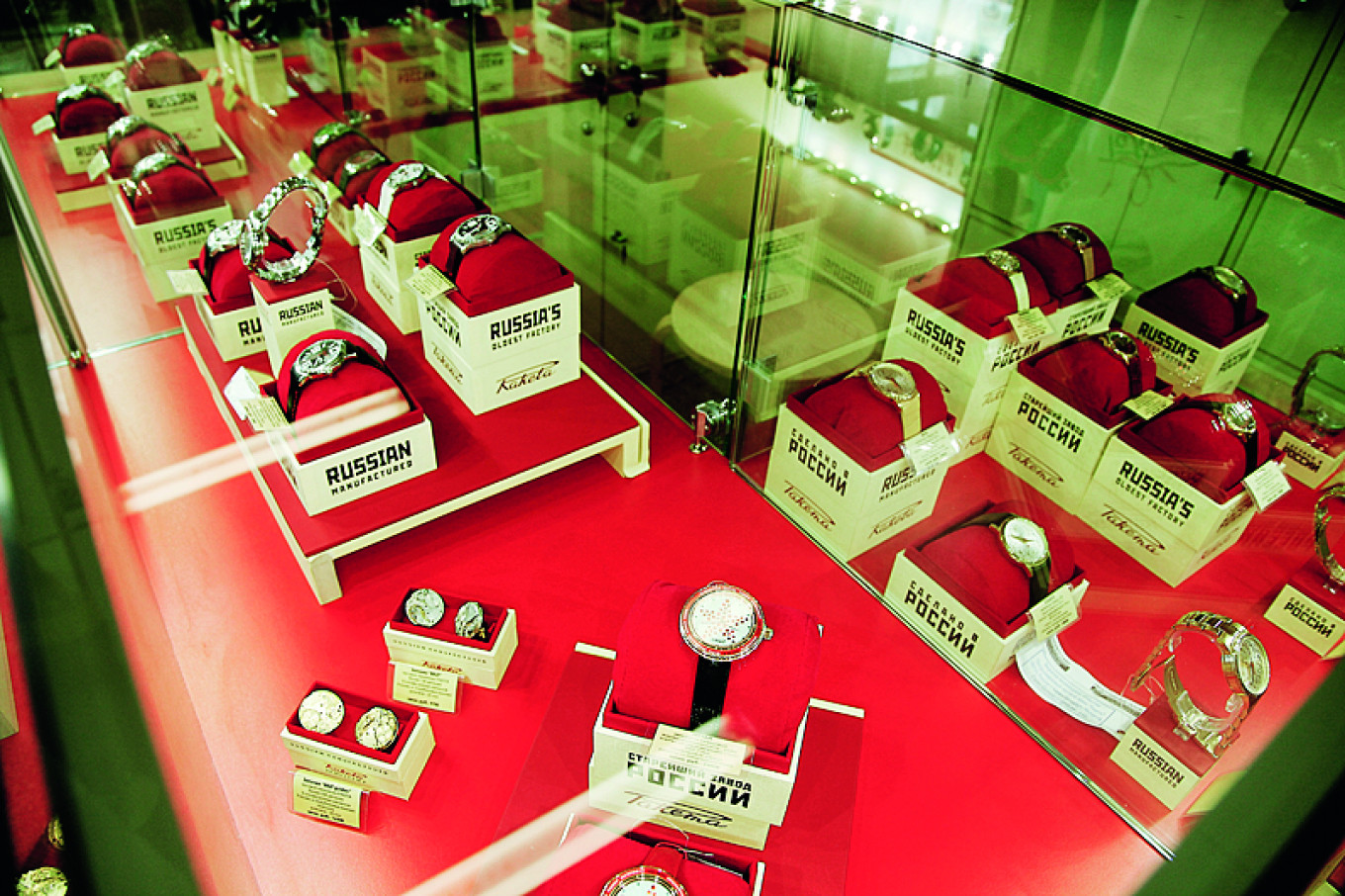
Beware of expensive imitations
In the six years von Polier has worked as Raketa’s creative director, the price of a Raketa watch has increased a hundredfold. Today, the average price of his wristwatches is an eyewatering 80,000 rubles ($1400). Twenty five years ago, after the fall of the Soviet Union, you could pick up a Raketa for a few dollars on the streets of Moscow.
Although the company’s factory was founded outside St Petersburg in 1721 by decree of Peter the Great, the brand Raketa was only launched in 1961 to commemorate Yury Gagarin’s first flight into space.
At its height, the Soviet watch industry was considered to be one of the world’s best. Apart from Raketa there were a dozen other factories producing mechanical watches nationwide. In the 1980s, production had reached the millions.
“Brands like Poljot, Raketa and Vostok advertised Soviet technical prowess,” says Bob MacGregor, a collector of Russian watches. “They produced state-of-the-art mechanical watches, which were crucial for military officers, pilots and cosmonauts.”
Abroad, Soviet watches earned a reputation for being cheap and reliable military watches. But when the Soviet Union collapsed, many of the factories also went out of business. Many of the defunct brands like Poljot have since become cherished collectors’ items. Only Raketa and Vostok—a brand known for making watches for military divers—actually survived in their entirety.
Raketa has also struggled through perpetual crises, passing from one private owner to another for 20 years. It was on the verge of collapse when von Polier intervened in 2009. Since then, economic difficulties have never been far away. The Frenchman declined to elaborate on the company’s revenue streams, but said sales had “grown 80% since 2009” and the company “hopes to break even in two years.”
The Frenchman, whose business card lists positions of both Chairman of the Board and Head of Design and Propaganda, admits that the decision to buy Raketa was driven by “romantic” reasons. He thought of it as more of a hobby than a full-time job. “Very quickly we realized this was going to take a lot of work, and were faced with a choice: go all-in, or close the factory.”
Vostok has fared only a little better financially. According to the latest available figures, the company claims to produce 15,000 watches per month. But the profit margins are tiny. In an interview given to a regional publication last year, company directors, Ivan Grachev revealed turnover of 63 million rubles ($1.1 million) and margins of 5 percent.
One Vostok watch, the Amphibia, however, has become something of a cult icon internationally, and appeared prominently in a Wes Anderson film, The Life Aquatic with Steve Zissou. In the film, Bill Murray’s character wears a black Amphibia. Raketa’s own credits include the recent spy film The Man From UNCLE. A Russian spy “kills a lot of people for his Raketa,” von Polier is keen to point out.
Overall, however, Russian watch collectors tend to prefer Vostok watches, says MacGregor. They are “more authentic,” he says—and, priced at 6,000 rubles [U.S. $105], a lot cheaper too.
“Raketa is the Porsche of modern Russian watches,” MacGregor says. “Vostoks on the other hand are workhorses with a storied heritage—unchanged for decades, and priced for the modern proletariat.”
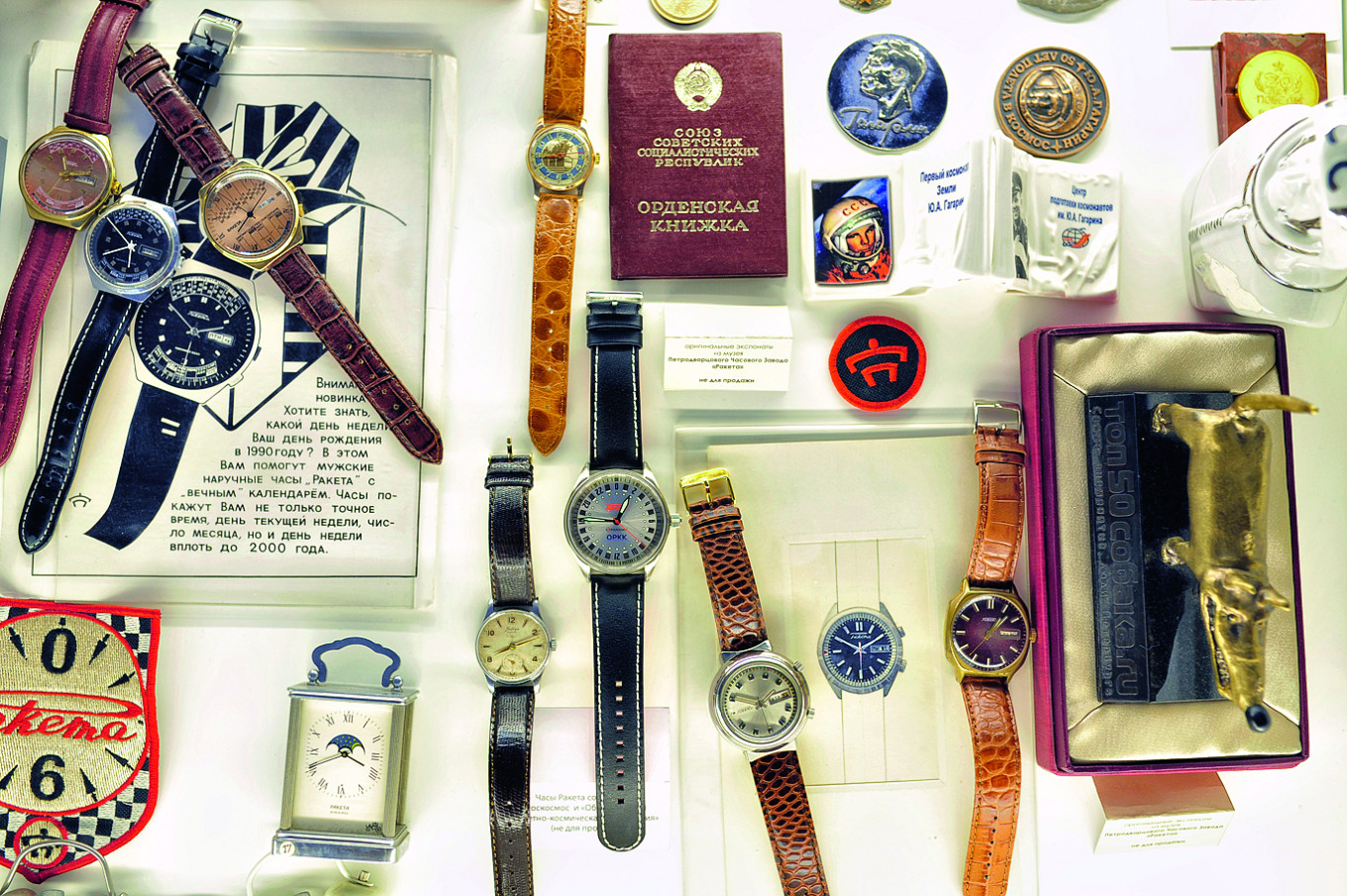
Famous advocates
Von Polier isn’t rattled by the comparisons. “Find me an example of another brand that increased its price 100 fold over six years,” he says.
Slapping a $1400 price tag on watches was not just about image, he adds. Yes, to sell watches in high-end shops, they must be priced like other high-end watches. But Raketa was also motivated by the bottom line. “We had no choice, either we close the factory or increase the price,” von Polier says.
To justify the price increases, Raketa focused on quality and image. But it wasn’t enough to offer a high-end patriotic product—it needed high-level ambassadors too. So Raketa looked to forge relationships with key “influencers” to promote the brand.
The company become the official watch maker for space agency Roscosmos. Famous cosmonaut Sergei Krikalev helped design a new cosmonaut watch. Likewise, partnerships with military aircraft manufacturers Tupolev and Sukhoi have made Raketas standard issue for Russian pilots.
Later, von Polier turned his attention to government, provocatively daring ministers to trade in their Swiss watches for domestic equivalents, and specifically a professional-looking piece Raketa calls the Avtomat. The pictures on von Polier’s office wall suggest converts at the highest level: Both President Vladimir Putin and Prime Minister Dmitry Medvedev are seen wearing the Avtomat.
“I’d say about 30 percent of the ministers are now wearing Raketa,” boasts the Frenchman. He claims it is now considered a scandal to wear Swiss watches in the government.
For those looking for additional bling status, the company has also made around 10 luxury versions of the Avtomat available. Known as the Oligarch, these watches are cased in gold and cost 1 million rubles ($17,500)
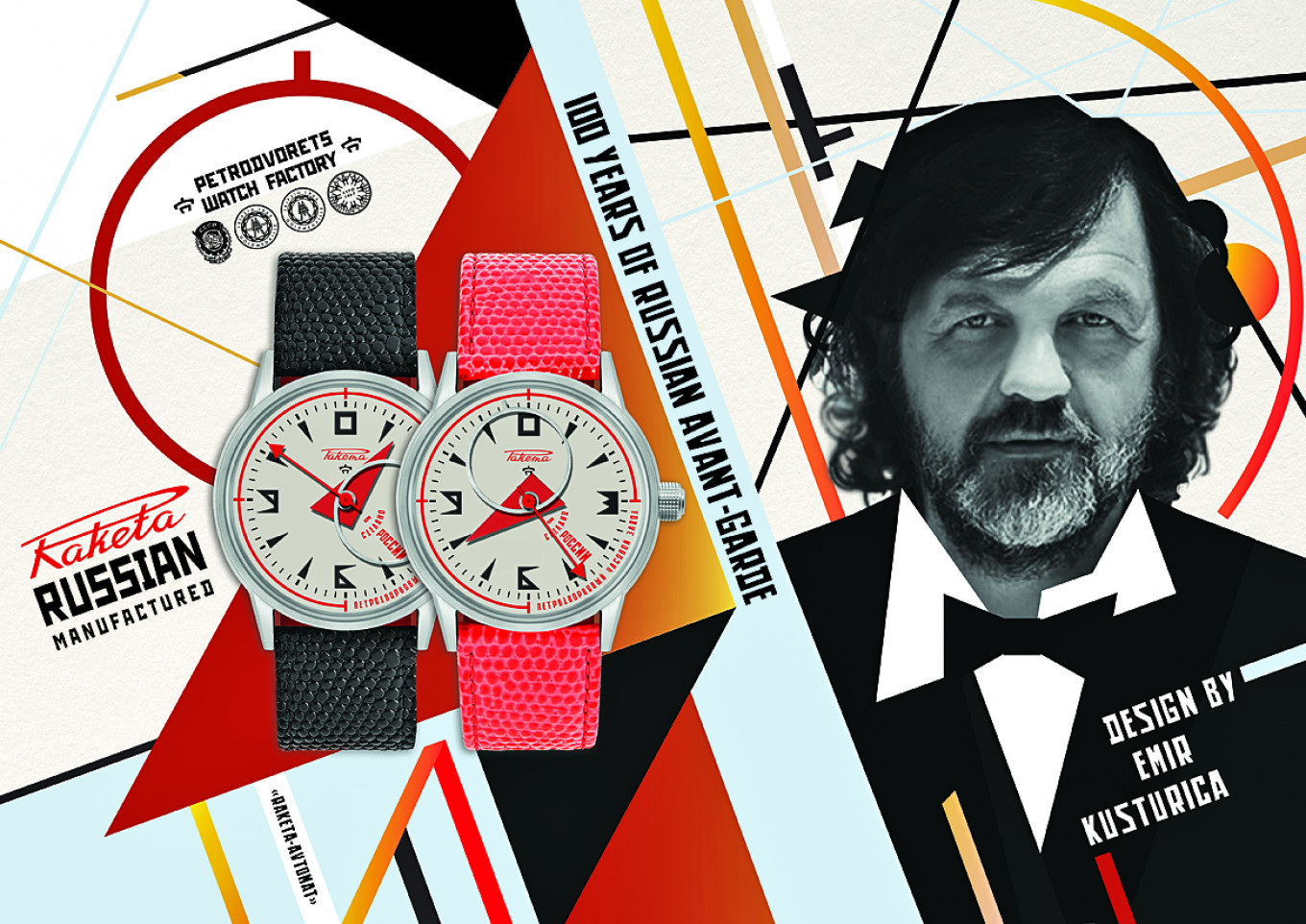
More Russian than the Russians
Von Polier’s patriotic fashion push has yet to draw in the clientele he desires. The company continues to struggle to stay afloat. In August, von Polier says the company almost closed, but was saved by a last-minute investor stepping in. He declined to name the investor.
Eventually, however, the Frenchman believes his brand overhaul will pay off. The biggest challenge in establishing a high-end brand is convincing high-end stores to carry your product, he says. Raketa had to fight for space in GUM and other elite Moscow retailers, and often with great resistance from the main luxury watch players.
“I won’t name names, but these guys really caused trouble for us” von Polier says, before gesturing towards a Ulysse Nardin catalogue and winking. The watch entrepreneur says he called the company himself to ask them to stop. When he got through, it was only natural that he played the patriotic card: “I told them they could do what they like in Switzerland, but that they shouldn’t even try kicking Russia’s last brand out of Russian shops.”
The Frenchman seems to revel in provocation. In 2014 he famously imposed “sanctions” on the West by “refusing” to sell his watches to Europe and the U.S. It was a story that was picked up widely by national and international media. “I lost nothing, because I didn’t sell anything in the West,” he freely admits. But the result was lots free publicity about a crazy Frenchman placing sanctions on America.
Von Polier says that he soon intends to lift his self-imposed sanctions from western markets. Next month, Raketa’s will make its Western debut, with the businessman having convinced an old Parisien shop owner to loan out his store on Place Vendôme—one of the world’s most exclusive and expensive shopping districts—for an unexpected European unveiling.
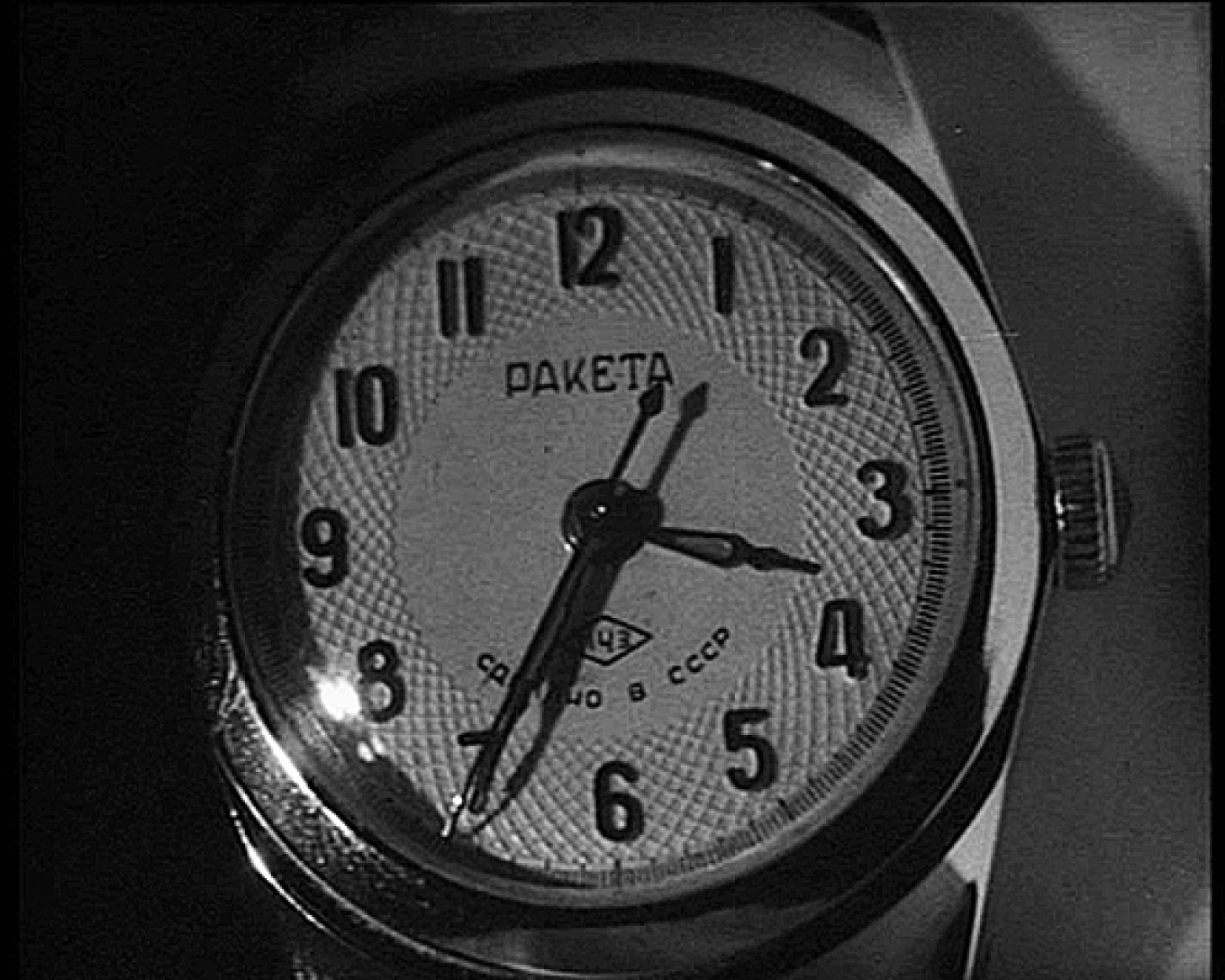
History for sale
Part of von Polier’s appeal to Russian patriotism is clearly driven by cold calculation, but it seems not to be the only element. Behind his image as a businessman, he also seems to be a man who is deeply attached to the watch’s history.
“When you have as much history as Raketa does,” von Polier says, “you are bound to it.”
His office is covered in archival watch designs, historical paraphernalia, and letters written by Raketa factory workers during the Second World War. Eighty percent of the factory’s workforce died in that war, taking their watchmaking craft with them.
Von Polier tells a story of one of his factory workers in Petrodvorets, a Jewish woman of 93-years. The woman’s entire life has revolved around the Petrodvorets factory, and she refuses to go into retirement. “She still remembers the day the Nazis came to the factory and executed her father in the courtyard,” he says.
History is what he is selling, he concludes.
“Next time when you ask why we need these watches,” he says, “think of it less as a piece of metal, and more of it as a piece of real, living Russian history, and something you can be rightly proud of.”
A Message from The Moscow Times:
Dear readers,
We are facing unprecedented challenges. Russia's Prosecutor General's Office has designated The Moscow Times as an "undesirable" organization, criminalizing our work and putting our staff at risk of prosecution. This follows our earlier unjust labeling as a "foreign agent."
These actions are direct attempts to silence independent journalism in Russia. The authorities claim our work "discredits the decisions of the Russian leadership." We see things differently: we strive to provide accurate, unbiased reporting on Russia.
We, the journalists of The Moscow Times, refuse to be silenced. But to continue our work, we need your help.
Your support, no matter how small, makes a world of difference. If you can, please support us monthly starting from just $2. It's quick to set up, and every contribution makes a significant impact.
By supporting The Moscow Times, you're defending open, independent journalism in the face of repression. Thank you for standing with us.
Remind me later.


